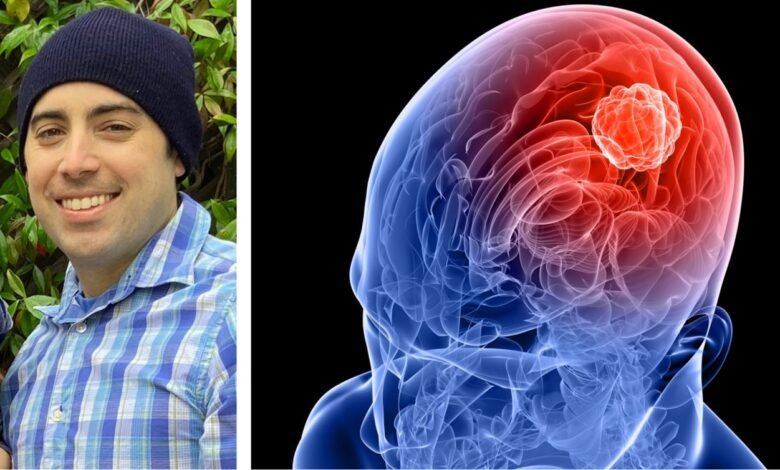7 Warning Signs You Should Never Ignore: Could It Be a Brain Tumor?

When it comes to our health, it’s important to pay attention to any warning signs that may indicate a serious condition. One such condition that requires immediate attention is a brain tumor. While brain tumors are relatively rare, being aware of the warning signs can potentially save lives. In this article, we will discuss seven warning signs that you should never ignore, as they could be indicative of a brain tumor. It’s crucial to understand that experiencing these symptoms doesn’t automatically mean you have a brain tumor, but it’s essential to seek medical advice to rule out any serious underlying conditions.
Read More: How Mental Health Treatment Can Change The Brain
Understanding Brain Tumors
Before delving into the warning signs, it’s crucial to have a basic understanding of brain tumors. A brain tumor refers to an abnormal growth of cells within the brain. These tumors can be categorized as either benign (non-cancerous) or malignant (cancerous). Irrespective of their classification, tumors can disrupt normal brain function and give rise to a range of neurological symptoms.
Benign brain tumors tend to grow slowly and have well-defined borders, which make them more manageable. They typically do not invade surrounding brain tissue and are less likely to recur once surgically removed. On the other hand, malignant tumors are more aggressive and can infiltrate nearby brain tissue, making complete removal challenging. Treatment for malignant tumors often involves a combination of surgery, radiation therapy, and chemotherapy.
Frequent Headaches
Headaches are a common ailment that can stem from various causes. However, if you experience persistent and severe headaches, especially accompanied by other symptoms, it could be a cause for concern. Brain tumor-related headaches are typically more intense in the morning and may worsen with physical activity or changes in posture. If your headaches become more frequent, and intense, and are not relieved by over-the-counter pain medications, it’s essential to consult a healthcare professional.
Persistent Nausea and Vomiting
While nausea and vomiting can be caused by numerous factors, such as food poisoning or a stomach bug, persistent and unexplained episodes of these symptoms should not be ignored. Brain tumors can exert pressure on different areas of the brain, disrupting normal functions and leading to nausea and vomiting. If you find yourself experiencing these symptoms without an apparent cause, it’s crucial to seek medical evaluation.
Seizures
Seizures occur when there is abnormal electrical activity in the brain. They can manifest as convulsions, muscle twitches, or loss of consciousness. Brain tumors can irritate or compress brain tissue, triggering seizures. If you experience a seizure for the first time or have recurrent seizures, it’s vital to consult a healthcare professional promptly.
Vision Problems
Changes in vision can be an early warning sign of a brain tumor. You may notice blurry vision, double vision, or a gradual loss of peripheral vision. These visual disturbances occur due to the tumor’s effect on the optic nerves or other visual pathways. If you experience persistent visual problems, it’s essential to have them evaluated by an eye specialist or a healthcare professional.
Cognitive and Behavioral Changes
Brain tumors can affect cognitive function and behavior. You may notice difficulties with memory, concentration, or problem-solving. Personality changes, mood swings, or sudden shifts in behavior can also occur. While these changes can be caused by various factors, it’s crucial to discuss them with a healthcare professional to determine the underlying cause.
Weakness or Numbness
One important warning sign of a brain tumor is experiencing weakness or numbness in specific parts of the body. This occurs when the tumor affects the nerves or disrupts the brain’s signals to those body parts. If you have persistent weakness or numbness, especially on one side of the body, it is crucial to seek immediate medical attention. These symptoms can affect different areas such as the arms, legs, face, or specific fingers and toes, making regular tasks challenging.
Difficulty with Balance and Coordination
Brain tumors can interfere with the brain’s ability to control movement and balance. If you find yourself experiencing unexplained clumsiness, difficulty walking, or problems with coordination, it’s essential to consult a healthcare professional. These symptoms may be indicative of a brain tumor or another neurological condition that requires medical evaluation.
Read More: The Power of Sleep: How Restful Nights Improve Your Health
Conclusion
In conclusion, being aware of the warning signs associated with brain tumors is crucial for early detection and prompt medical intervention. While experiencing these symptoms does not automatically indicate the presence of a brain tumor, it is important not to ignore them. If you notice any of the warning signs discussed in this article, such as persistent headaches, nausea and vomiting, seizures, vision problems, cognitive and behavioral changes, weakness or numbness, or difficulty with balance and coordination, it is essential to consult a healthcare professional for a thorough evaluation.
Remember, early detection and timely treatment play a significant role in improving outcomes and increasing the chances of successful management of tumors. Ignoring or dismissing these warning signs can potentially delay diagnosis and intervention, which may negatively impact your health and well-being.
FAQs
1. Are these warning signs exclusive to brain tumors?
No, these warning signs can be associated with other medical conditions as well. However, if you experience these symptoms, it’s important to consult a healthcare professional for a proper diagnosis.
2. Can brain tumors be cured?
The treatment and prognosis of brain tumors vary depending on several factors, including the tumor type, location, and stage. Some tumors can be successfully treated or managed with a combination of surgery, radiation therapy, and chemotherapy.
3. How common are brain tumors?
Brain tumors are relatively rare, accounting for a small percentage of overall cancer cases. However, they can occur at any age and can be life-threatening.
4. Are there any risk factors for brain tumors?
While the exact cause of most brain tumors is unknown, certain risk factors, such as exposure to radiation, a family history of tumors, and certain genetic conditions, may increase the risk.
5. Can these warning signs be present in children as well?
Yes, children can also experience these warning signs. If you notice any unusual symptoms in your child, it’s important to consult their pediatrician for appropriate evaluation and guidance.







